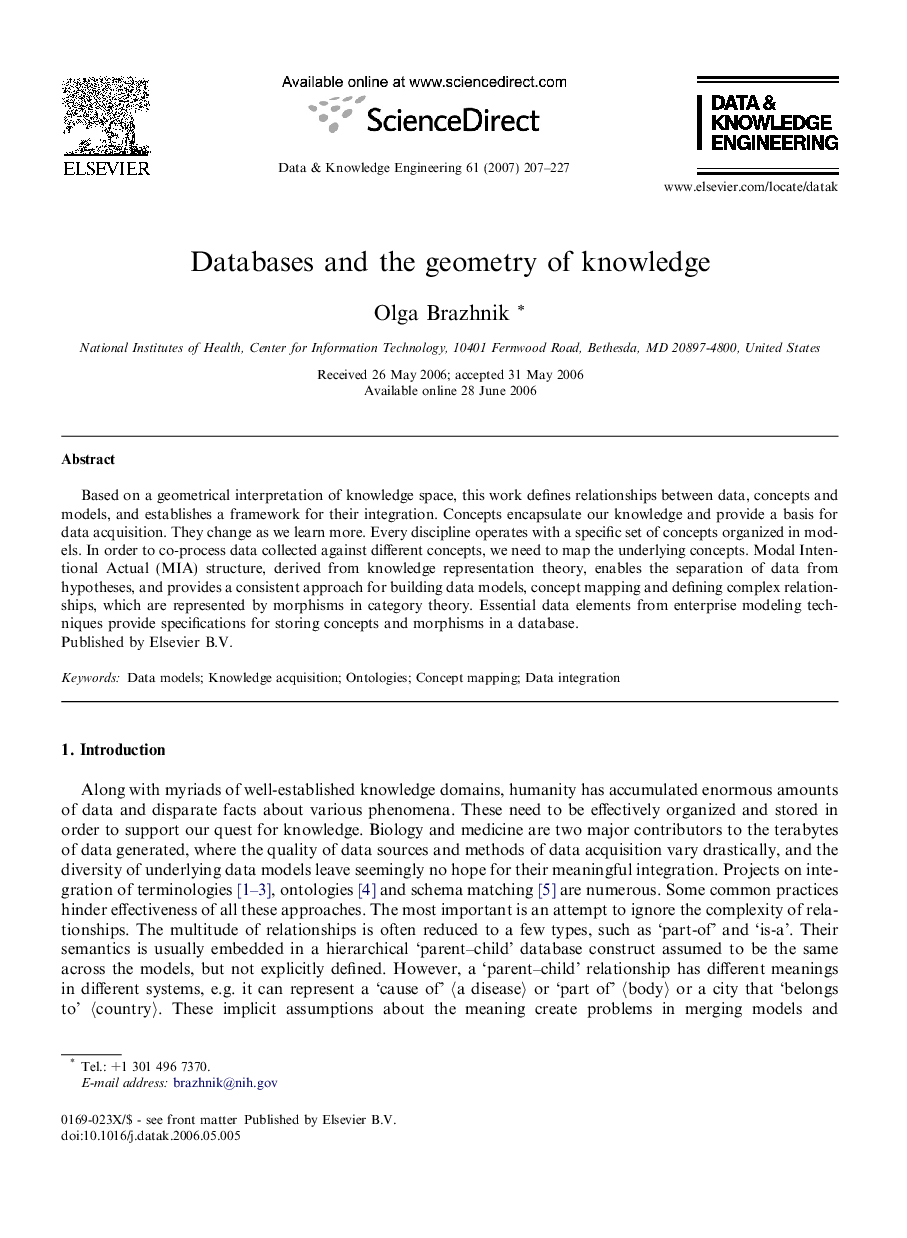| Article ID | Journal | Published Year | Pages | File Type |
|---|---|---|---|---|
| 379516 | Data & Knowledge Engineering | 2007 | 21 Pages |
Based on a geometrical interpretation of knowledge space, this work defines relationships between data, concepts and models, and establishes a framework for their integration. Concepts encapsulate our knowledge and provide a basis for data acquisition. They change as we learn more. Every discipline operates with a specific set of concepts organized in models. In order to co-process data collected against different concepts, we need to map the underlying concepts. Modal Intentional Actual (MIA) structure, derived from knowledge representation theory, enables the separation of data from hypotheses, and provides a consistent approach for building data models, concept mapping and defining complex relationships, which are represented by morphisms in category theory. Essential data elements from enterprise modeling techniques provide specifications for storing concepts and morphisms in a database.
